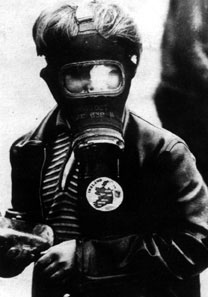HI7104 Violence and Politics in Twentieth-Century Ireland

Module Coordinator: Dr Anne Dolan
ECTS: 10
Contact Hours: 2 hours per week
Assessment: Students will complete the equivalent of two essays of c.3,500 words. The first essay or equivalent assignments will be preliminary work. The second essay will carry the mark for the module.
This course will explore the use and consequences of political violence in Ireland. This is not to suggest that it is an exploration of military planning and strategy, a celebration of military manoeuvres, yet another analysis of the obvious military men. It is driven rather by the experience of violence, by the combatants’ motivations for fighting, their fears, dreads and excitements, their recollections of combat in all its forms, and the effects it had on the lives they led after their wars were won and lost. It is concerned with the culture of violence, with the experience of trying to continue an ordinary life in violent circumstances, of trying to negotiate which was the safest side to be on and when, to adhere to whoever seems the strongest, to stand against or to take advantage of difficult circumstances. It will examine the experience of those targeted, those deemed enemies of whatever side; examine the nature and the changes in violence itself. It will consider the end of violence, the problems of returning to ordinary life, the question of how to contain forces unleashed in earlier bloodier times, to reconcile them once more to ‘being a nobody behind a plough’. It will ask why at times it was not more violent still.
The course will also examine perceptions and portrayals of violence, how they change, how they were perpetuated at the time and altered by circumstances since. It will look at the ongoing historical debate, consider its wider relevance, consider how and how effectively the Irish example could benefit from wider context and comparison than has been admitted to date.
Learning Outcomes
On successful completion of this module students should be able to:
- develop an awareness and an insight into the range of issues and debates current in this area of Irish historiography
- identify the relevant primary materials available and will expand their framework of interpretative and analytical skills
- view the Irish situation in a comparative context

